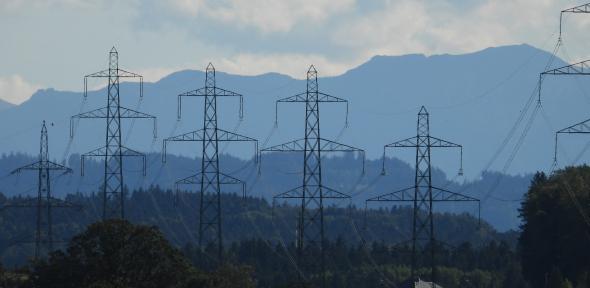
Would Europe cutting off Russian oil and gas imports be enough to convince Putin to stop the war on Ukraine? According to Dr Chi Kong Chyong from the Energy Policy Research Group at Cambridge Judge Business School, the global nature of energy markets means that stopping the flow of Russian oil and gas into Europe may not be the ‘hammer blow’ that Western countries are looking for.
Russia’s invasion of Ukraine marks the darkest hours for Europe since the Second World War. Ukraine is fighting to preserve not only its territorial integrity, but its very right to exist as an independent, democratic country in the heart of Europe. For Putin to fund his war, he relies on the revenue generated by Russian oil and gas exports to Europe. In a best-case scenario, Europe would wind down its commercial gas relationship with Russia in the coming years. But a ban on the import of Russian oil and gas is also a possibility, which would lead to an abrupt breakdown of the gas trade.
Such a breakdown would be painful for consumers, as Europe relies on Russia for at least 40% of its gas imports. Immediate effects could include switching to alternative means to generate our electricity (e.g., using more coal, oil or nuclear), or voluntarily curbing non-essential industrial, commercial and residential gas demand. There will likely be a transitory period of demand rationing and administrative measures to manage gas markets.
Most Russian gas exports to Europe are underpinned by long-term contracts, with firm financial commitment from European buyers to pay for the agreed volume, irrespective of actual imports.According to Reuters, Russian long-term gas contracts with European buyers stand at 120 bcm per year. At the current spot price of around €227 per megawatt-hour, the value of these contracts is more than €308 billion. Without renewals, these contractual commitments will halve by 2035 and cease after 2040.
Dr Chi Kong Chyong holds a PhD in Energy Economics and Policy from Cambridge Judge Business School and an MPhil in Technology Policy from Cambridge. Before coming to Cambridge, he worked as a researcher at the National Academy of Sciences in Ukraine. Since completing his PhD, Kong has been a research associate in the Energy Policy Research Group working mostly on natural gas market modelling and Eurasian gas trade relations as well as on energy infrastructure investment.
Read the full University of Cambridge article.
Image credit: RoyBuri

